FOMO is driving most corporate AI adoption, according to an IBM survey of 2,000 CEOs.
It found that 64% adopted AI because “the risk of falling behind drives investment in some technologies before they have a clear understanding of the value they bring to the organization.” Furthermore, 37% said it’s better to be “fast and wrong” than “right and slow” when adopting technology. I wonder if the phrase “fiduciary responsibility” rings a bell with any of them?
No surprise, then, that only 25% of AI initiatives delivered expected ROI and only 16% have scaled enterprise-wide. It also explains why only 52% said their organization is realizing value from generative AI investments beyond cost reduction.
Despite all that, success is right around the corner: “By 2027, 85% expect their investments in scaled AI efficiency and cost savings to have returned a positive ROI, while 77% expect to see a positive return from their investments in scaled AI growth and expansion.”
Meanwhile, marketing continues to be one of the few functions where AI and ROI are proud of each other.
Here’s this week’s AI-powered martech releases and news:
May 8, 2025
- Optimizely released an updated version of Opal. It includes a redesigned user interface, a persistent Chat feature across products and a new Instructions interface for managing agents. Users can access a pre-built tool library for tasks like webpage analysis, presentation creation and keyword research. The platform also includes specialized agents for marketing tasks and agent workflows that coordinate multiple agents either in sequence or concurrently.
- PubMatic launched an updated buyer platform powered by generative AI. The platform streamlines the media buying process through audience and inventory discovery, forecasting, curation, activation and performance optimization. It integrates direct SSP access with AI-based buying tools, providing buyers with detailed visibility into supply paths.
- BlueConic introduced two new generative AI features to its customer data platform. These enhancements focus on the personalization and modeling components, aiming to improve the execution of marketing strategies using real-time data analysis and automated decision-making.
- StackAdapt released new email marketing and Data Hub solutions in its advertising platform. Users can manage and activate campaigns across formats including display, native, video, CTV, DOOH, in-game, audio and email, using a single integrated workflow.
- Algolia launched Smart Groups, which let merchandisers and content managers control product and content presentation in search and category pages. The tool blends manual configuration with automated ranking and does not require developer support.
- Anura Solutions and InsurAds have partnered to integrate Anura’s fraud detection tools into InsurAds’ ad insurance offering. Advertisers will receive additional safeguards alongside InsurAds’ Marketing Assurance Warrant, which ensures ads reach real users in brand-safe environments.
- MarketTrends AI launched a market intelligence platform designed for small and mid-sized businesses. The platform includes an AI agent that monitors market trends, competitor activity and customer behavior, delivering monthly reports with proprietary indices covering demand, labor costs and raw materials.
- BuyerTwin introduced a platform that creates AI-based simulations of target buyer personas. These interactive “twins” provide real-time feedback on messaging, website usability and product positioning, helping teams evaluate their strategies as if speaking to their intended audience.
- BrandRank.AI launched a platform for monitoring brand presence across AI search engines and language models. It evaluates visibility, identifies content risks and suggests improvements. Features include composite scoring, visibility benchmarking and forthcoming vulnerability metrics.
- Eventdex unveiled an AI assistant built into its event management app. The assistant provides voice and chat-based support to event attendees by answering questions about schedules, sessions, booth locations and venue navigation.
- MessageGears announced updates to its marketing platform, adding capabilities for segmentation, workflow design and data security. New features include quicker audience segmentation, campaign component previews, version control for dynamic content and restricted data preview access for enhanced control.
- Textellent introduced a two-way integration with ActiveCampaign. The feature enables automatic contact synchronization between platforms and logs all SMS activity from Textellent as notes within ActiveCampaign.
- Omneky launched Campaign Launcher, a tool that lets marketers create and deploy ads across platforms like Meta, Google and TikTok directly from the Omneky dashboard. Features include AI-generated campaign setup, collaborative creative review and single-dashboard omnichannel deployment.
- EmailAnalytics released a Sentiment Analysis feature that evaluates the emotional tone of email communications. The tool scores both incoming and outgoing messages, offering insights into customer sentiment and team communication patterns.
- CallMiner updated its AI Assist platform, expanding its agentic AI framework. New Research agents use natural language queries entered through a simplified interface to conduct analysis and return findings from customer interaction data. A Review function lets users select specific interactions for deeper evaluation within the platform. Supervisor agents coordinate tasks among other agents, perform data analysis based on previous interactions, generate reports, and highlight trends or potential risks identified in customer conversations.
- Captiv8 partnered with Perplexity to integrate AI-driven features into its influencer marketing platform. The integration uses Perplexity’s Sonar models to support campaign planning, execution, and reporting. These AI tools are embedded within Captiv8’s interface and are designed to automate research and analysis tasks throughout campaign workflows.
- Talkdesk launched Talkdesk Express, a customer service solution designed for small businesses. Features include a natural language routing tool that interprets customer queries and prioritizes them for routing (Navigator), a real-time assistant that supplies agents with relevant information and handles post-call summaries (Copilot), a self-service option for handling routine inquiries outside business hours (After Hours and Autopilot), and a voice biometric system that automates caller authentication (Identity).
- Meltwater released new AI-driven features, including Mira, a chat-based assistant that performs media monitoring and analysis tasks. Mira interacts through a conversational interface and can handle functions such as compiling news briefings, tracking brand mentions, and monitoring competitor activity. These features aim to simplify repetitive tasks by combining general-purpose AI with domain-specific data.
May 1, 2025
- Amperity’s Identity Resolution Agent unifies customer data using AI-driven data preparation and identity matching. It applies both deterministic and probabilistic techniques based on specific business use cases and includes a QA interface that makes data connections transparent. The system integrates with platforms such as Databricks and Snowflake and includes a sandbox environment for safely testing new data sources.
- Sendbird’s Omnipresent AI Agent connects customer service across multiple channels, including web, mobile, SMS, email, and voice. It maintains conversation continuity and uses contextual memory to respond based on previous interactions, aiming to address issues before they escalate.
- Lionfish Tech Advisors’ Aquarium is a market intelligence platform that combines large language models with input from its advisory team. The system focuses on cybersecurity sectors, including XDR and cloud security, offering users data-driven insights and contextual analysis based on sector-specific expertise.
- Cadent’s The Cadent Platform is a system for managing advertising across channels. It incorporates predictive modeling to forecast campaign outcomes, activates media based on those forecasts, and adjusts performance in real time during execution.
- MediaViz AI updated its multimedia analytics platform designed for high-volume image processing. It supports perceptual analysis modeled on human vision, can process up to 60,000 images per hour per AI node, and includes tools to detect and flag near-duplicate images in datasets of up to one million files.
- Feroot Security’s AlphaPrivacy AI automates privacy compliance for web applications. It uses AI to identify and manage privacy risks in code and user-facing interfaces across enterprise websites.
- EnRoute Growth Platform’s SEO Boost+ is a suite designed for SMBs that includes automated content creation, optimization of Google Business Profiles, local citation management, backlink tracking, and reputation monitoring. It is structured to support visibility in both search engines and AI-driven discovery tools.
- Intent IQ’s Bid Enhancement solution is available on Google Cloud Marketplace. The tool includes identity matching features for cookieless environments, real-time ID synchronization between ad platforms, and a proprietary engine that supports multiple browsers. A UI dashboard provides performance tracking, supply path optimization, and A/B testing.
- Swapcard’s AI-Recommended Leads for event exhibitors ranks attendee engagement. It scores participants based on their interactions with brand assets and content, giving exhibitors a way to identify attendees who are more likely to be interested in further engagement.
- IntelePeer’s new voice capabilities for its conversational AI platform include automatic speech recognition and text-to-speech streaming. It is designed to integrate into communication workflows, support real-time interactions, and enable customization of speech processing.
- Puntt AI, which provides AI compliance agents to market, launched. Puntt AI’s autonomous agents review creative, product, and legal content in real time, using internal guidelines, case law and global regulations.
April 24, 2025
- Wix.com launched an AI-powered adaptive content application that personalizes website experiences. The application generates dynamic content based on visitor characteristics and instructions. It uses session details from the website to create new content according to predefined criteria and user instructions, to increase engagement and improve user experience.
- Tagboard launched Spark AI, designed for content and commerce teams to deliver shoppable moments during live broadcasts and events. This AI-powered system supports interactive graphics for sports, news, and entertainment storytelling.
- Duda launched an AI-powered Content Collection solution. The tool gathers business information and site assets and makes them immediately accessible within Duda’s website editor. These assets can be used with pre-built templates or for AI-generated websites.
- NLX launched Touchpoint, a multimodal conversational interface that incorporates chat, voice, images, and video into a single AI-powered experience for end users. This out-of-the-box solution enables NLX customers to create comprehensive conversational experiences.
- Sitecore launched the Sitecore AI Innovation Lab, created in collaboration with Microsoft. This program provides an environment for marketing leaders to explore AI-driven solutions for content operations. The lab guides marketers in defining their AI approach and accelerates the development of solutions tailored to specific use cases.
- Photoroom launched three new AI-powered tools: Product Beautifier enhances lighting, pose, and angles to create studio-quality product visuals; Product Staging analyzes products and generates context-rich scenes with props and backgrounds; and Virtual Model renders clothing and accessories on a curated library of virtual models, showing draping and fit on different body types and styles. These tools use OpenAI’s gpt-image-1 technology.
- MACH Alliance unveiled the MACH AI Exchange, a professional peer network focused on guiding AI implementation for enterprise companies. The program will launch at The Composable Conference 2025, taking place April 22-24 in Chicago.
- Compass Marketing Intelligence is an accelerator solution that connects businesses with their Google Marketing Platform data within Google Cloud Platform. The turnkey solution integrates with Conversational AI powered by Gemini, centralizing, visualizing, and activating GMP data in minutes to transform marketing decision-making.
- Podcastle launched a new hub of AI Voices powered by their proprietary voice generation model Asyncflow v1.0. Users can select from 500 AI voices and clone unlimited custom voices to create audio content at scale. The system produces lifelike voices without high costs.
- Hippo Video converts text, documents, and ideas into videos with AI-generated avatars. It works through three components: a Creation Agent that transforms content into videos with scripts and voiceovers in multiple languages, a Campaign Agent that distributes personalized videos with interactive elements such as clickable calls-to-action and polls, and a Video Co-Pilot that creates digital representations of team members to deliver content and respond to questions in real time.
- Ajelix launched AI Data Analyst, a conversational tool for data analysis. Users upload data and enter questions in natural language to receive analysis results and visualizations. The product targets small and medium-sized businesses that do not have dedicated data analysis departments.
The post The latest AI-powered martech news and releases appeared first on MarTech.
